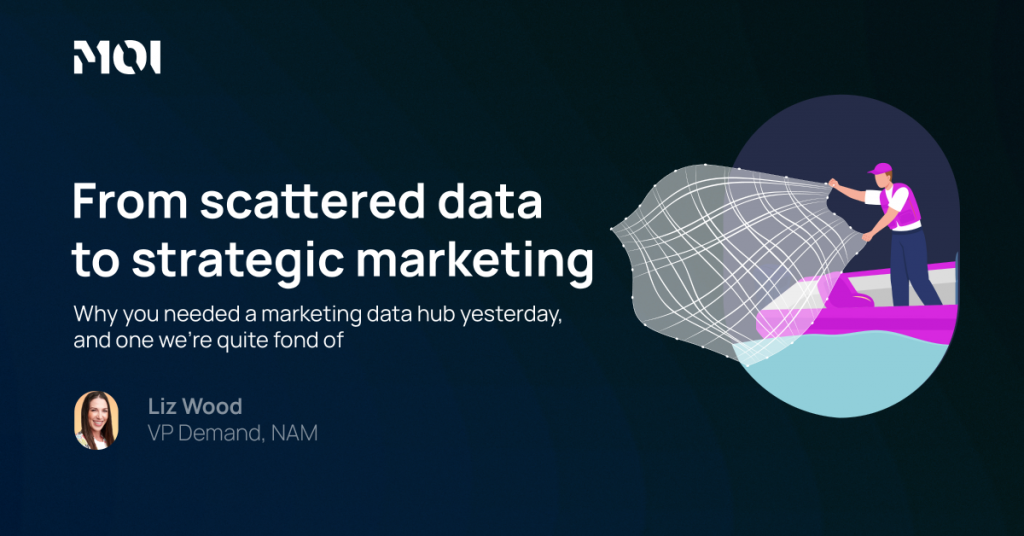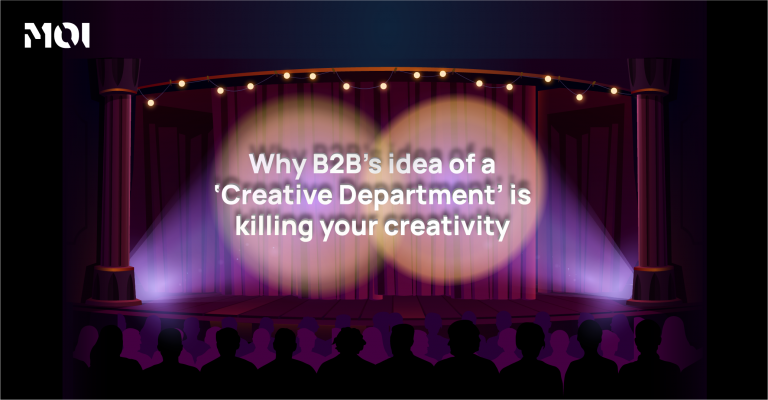
In today’s data-driven marketing world, information is king. But with customer touchpoints scattered across countless channels, it’s easy to feel overwhelmed by a sea of unorganized data. This is where a Marketing Data Hub (MDH) comes into play, acting as the central nervous system for your marketing data.
First, what is an MDH? Think of a Marketing Data Hub as the pipe system connecting disparate data sources (1st party, 3rd party, web, CRM, etc.), automatically aggregating that data into a single data set, storing the data in a privacy-first environment, and allowing that data to be cleansed, normalized, visualized, and analyzed, all in a much more efficient manner than if the data were otherwise handled manually.
Where an MDH fits in the martech ecosystem
Note, while there are similarities between an MDH, a DMP, a CRM, and a CDP, they’re all unique in their own right:
- MDH (Marketing Data Hub): A marketing technology that connects all available customer and prospect data sourced from different software, channels, and media. While there are many MDHs out there, at MOI we’re very fond of Funnel.
- DMP (Data Management Platform): A data management platform is software that controls the flow of data in and out of an organization. It supports data-driven ad strategies such as segmentation. Major DMPs include Lotame, BlueKai, Krux, and Adobe.
- CRM (Customer Relationship Management): A business strategy platform that optimizes revenue and profitability while promoting customer satisfaction and loyalty. CRM software provides functionality to companies in four segments: sales, marketing, customer service, and digital commerce. Most marketers are familiar with CRMs such as SalesForce, Hubspot, and so on.
- CDP (Customer Data Platform): A CDP is a marketing system that unifies a company’s customer data from marketing and other channels to enable customer modeling.
Unifying Your Customer Data
Imagine your Marketing Data Hub as a giant information hub. It centralizes all your customer data into a single, unified platform. This includes first-party data you collect directly from your customers, as well as second-party data from trusted partners and third-party data from external sources. By unifying your data, MDHs unlock a treasure trove of benefits for marketers:
- Data Clean Up: At its core, the tool of your choice (again, we highly recommend Funnel) should allow you to Data Clean Up: At its core, the tool of your choice (again, we highly recommend Funnel) should allow you to aggregate data into one centralized location, normalize (aka “clean up”) the data, and analyze a vast amount of information in a significantly more efficient manner than you otherwise would be able to with siloes.
- Sharper Audience Segmentation: Your MDH should allow you to group (and analyze) data into highly specific segments based on firmographics, locations, behaviors, and so on. This allows for more precise identification of audiences that matter, and application of those audiences to campaigns with confidence, ultimately resulting in stronger ROI downstream.
- Improved Campaign Measurement: MDHs give you a clear picture of how your campaigns are performing across different channels. You can track performance across a myriad of KPIs, identify what’s working and what’s not, and optimize your campaigns on the fly for better results.
In an internal case study exercise, MOI found a 70% decrease in time spent doing an analytics task using Funnel’s DMP vs. going directly to the platform to pull / aggregate / synthesize data.
Not sure if your current solution is up to snuff? Here’s your checklist for evaluating / switching / upgrading your Marketing Data Hub operations. Find one that:
- Connects (and automates) data from any marketing platform, store, organize, and share it with visualization platforms and/or data warehouses (built in visualization a plus)
- Provides prebuilt and custom rule capabilities for analytical flexibility
- Allows for custom connector and field requests
- Has hands on, real human customer service to help navigate and troubleshoot
- Ingests up to date and accurate data available through reliable and test API integrations built to scale
- Accesses multi-year historical data
- Checks all boxes on security certifications, governance, and compliance: ISO 27001, SoC2 Type 2, GDPR, CCPA
Psst… our partners at Funnel check the box on all of these, and then some

We’re excited to work together with MOI as one of our super users and Solution Partners. They truly see the benefits of using Funnel’s marketing data hub to provide their analytics services, leading to data driven marketing strategies for their clients.

The Future of Marketing is All About Data
As the marketing landscape evolves, the handling of your data will continue to be tantamount, especially with the potential demise of third-party cookies and the rising concern of data privacy. https://moi-global.com/how-first-party-data-wins-in-the-cookieless-era/
By harnessing the power of an MDH, you will transform your marketing efforts from scattershot to strategic, build a stronger understanding of your cross-channel performance, and ultimately improve operations and business efficiencies. So, if you’re serious about taking your data management to the next level, consider investing in a Marketing Data Hub. And Psst… here’s how to get in touch with our friends over at Funnel (let them know we sent you!).


